Kennebunkport’s Freedom Farm 1949-1955
Displaced Persons (DPs) from Ukraine, Estonia, and Poland were offered refuge at Kennebunkport’s Freedom Farm after World War II thanks to the generosity of one Arundel Road farmer. Ethar Milliken had read about the plight of Eastern European refugees and decided to donate one of the two farms he owned to the United Baptist Convention of Maine. The group repaired the old 11-room farmhouse on Arundel Road and reconfigured it into 3 apartments. Kennebunkport people donated labor, money, livestock, and equipment to the cause. The farm served as a temporary home for DPs from 1949-1955; a place where they could become acclimated to American culture, find jobs, and then move on to make way for another family.
The Parnas were the first of six families to benefit from Milliken’s extraordinary generosity. Before the war, the Parnas lived in the ancient city of Tallinn, Estonia, located on the Gulf of Finland. Theirs was a middle-class cosmopolitan existence. Ants Parna had a white-collar job as a technical advisor at a large shoe factory there until the City of Tallinn was occupied by Russian soldiers in 1940, ostensibly to protect it from Nazi invasion. Within a year the Estonians were stripped of their liberties. In one night alone, more than 60,000 civilians were deported to Siberia and other remote areas of the Soviet Union. Fearing that he would be sent to a Russian work camp Ants gathered his extended family and slipped out of the city. They sailed to Poland and then traveled 500 miles south to Linz, Austria, where finding no other place to live, they entered a German prison camp and remained there until Nazi Germany was defeated.
All the Freedom Farm families transitioned through American DP camps in Germany. Life at the DP camp was mere survival. “We had no place to bathe, only a place to wash our hands and face,” Agnes Parnas recounted. “Thirty cents a day was allotted for food. Before each meal we stood in line for 1 or 1 ½ hours hoping we would be in time to get the food before it was all gone.” Little Lembi Parnas suffered from a vitamin A deficiency and was going blind.
Ants, Agnes and Lembi arrived in Kennebunkport travel-weary and overwhelmed in June of 1949. After nearly a decade of suffering they did not immediately trust how their lives had changed. Within a few months a well-nourished Lembi, whose eyesight had been restored, chattered away in English as if she had been in America for years.
Two more DP families were welcomed to the Freedom Farm that fall. Mr. and Mrs. Wassily Gontschar and their 21 year old son Mykola were from Ukraine. Their two other teenage sons had been taken to a German labor camp and never heard from again. Mrs Gontschar’s parent were also killed.
Mr. and Mrs. Mykola Wolotschaj had a 3-year-old son Ivan. The Wolotschajs were Polish. Ukraine and Poland were first occupied by Communist Russia then Nazi Germany.
About 30 people transitioned to self-determination at the Freedom Farm. Several had been prisoners of war. All had their own stories of suffering and triumph. The last family to transition through the Freedom Farm before it closed in 1955 was the Wowk family from Ukraine. Alexander’s mother, father, six brothers and sisters had all been killed by the Communists. The two Wowk children Alec and Ludmila had both been born in a DP camp in Germany. The Wowk family only stayed for a few months before moving to a Ukrainian farm colony in Pittston, ME.
Ethar Milliken died in 1956. By then, a minister from the Baptist Conference was occupying the farm. It was sold to private parties in 1963 and then burned to the ground on Jan. 28, 1968. Only the barn remains to remind us of Ethar Milliken’s gift and the shattered lives it changed.


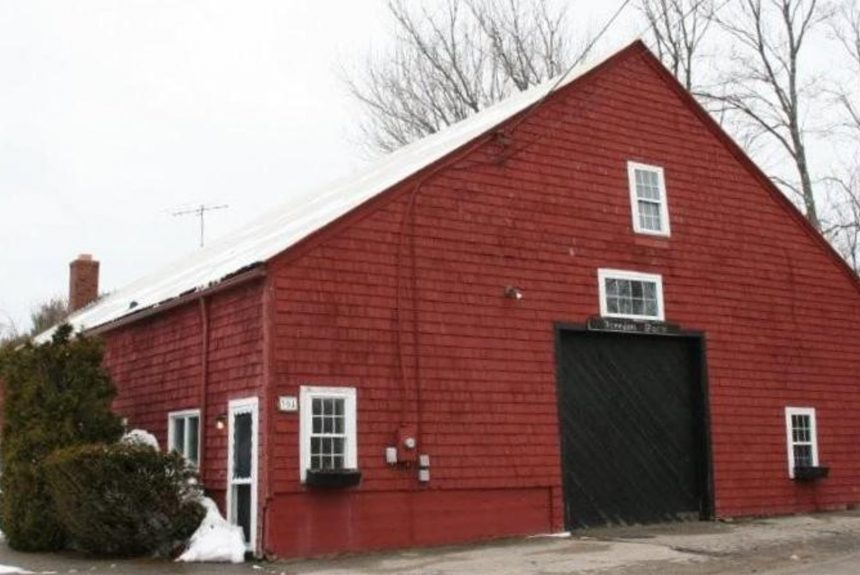
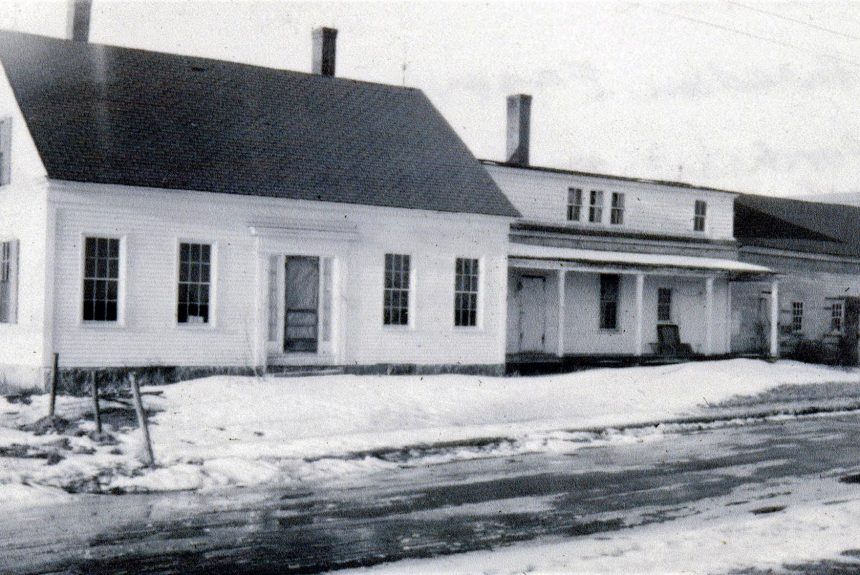
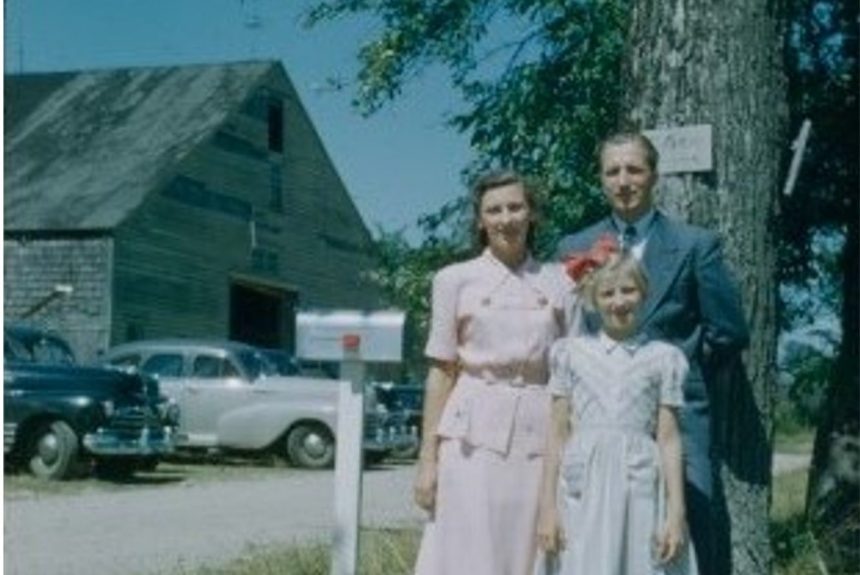
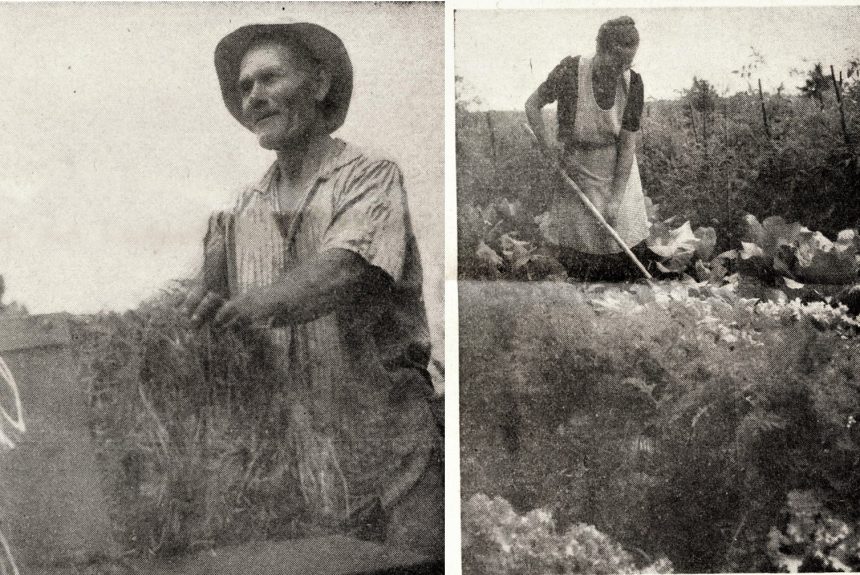
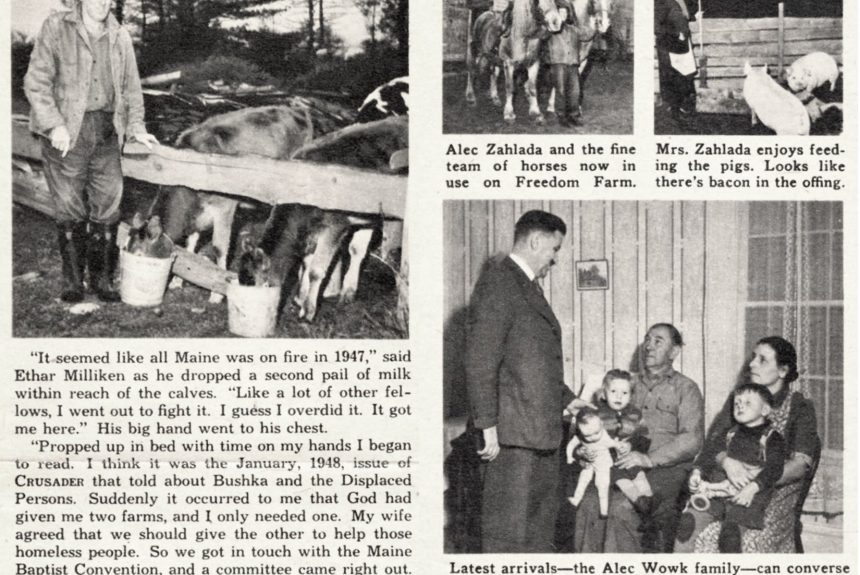
Leave a Reply